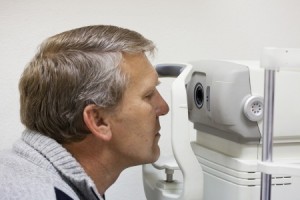How often should you and your family have an eye exam?
 How often should you and your family have an eye exam?
How often should you and your family have an eye exam?
Experts recommend a child’s first eye exam should occur between the ages of 3 to 5. Another eye exam should be scheduled before a child starts first grade. These exams are important ways to detect vision problems that could affect a child’s ability to do well in school. Depending on any eye issues, an eye care professional may recommend exams yearly or every two or three years after that point and into adulthood. If you have vision insurance, check to see how often routine exams are covered.
Vision exams can be important ways to catch serious issues early. The Glaucoma Research Foundation recommends eye exams every two to four years before age 40, every one to three years from age 40 to 54, and every one to two years from age 55 to 64. Once you reach age 65, an eye exam is recommended every six to 12 months.
That’s because while anyone can develop Glaucoma, it is much more common among older people. In fact, you are six times more likely to get Glaucoma if you’re over 60. Glaucoma occurs when the eye’s drainage system becomes clogged so the intraocular fluid — the clear fluid in the front part of the eye — cannot drain. Pressure builds within the eye as the fluid builds up, and that pressure damages the sensitive optic nerve and causes vision loss. Early detection is essential to avoid vision loss.








